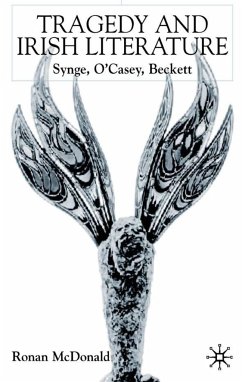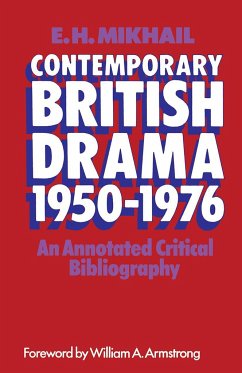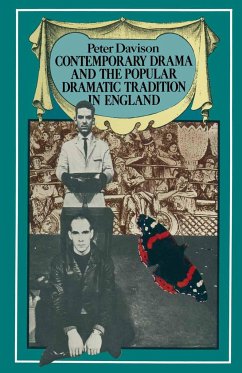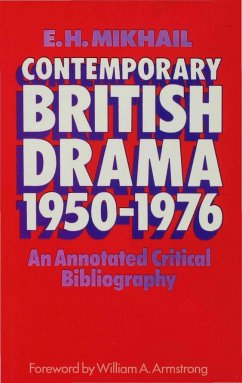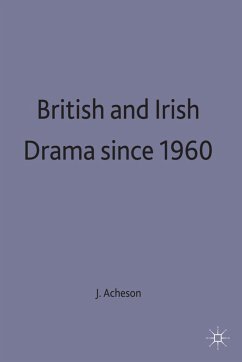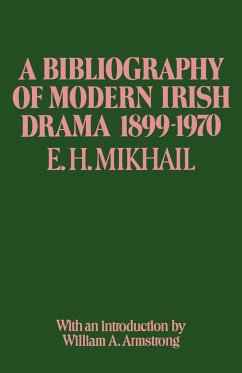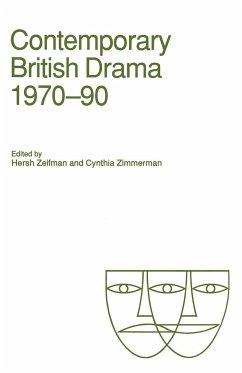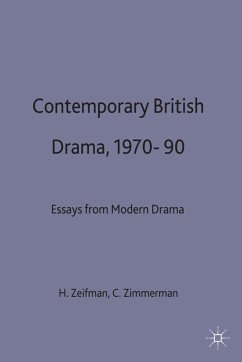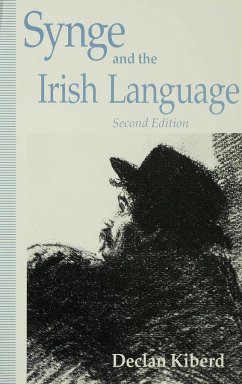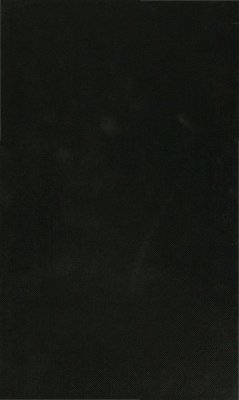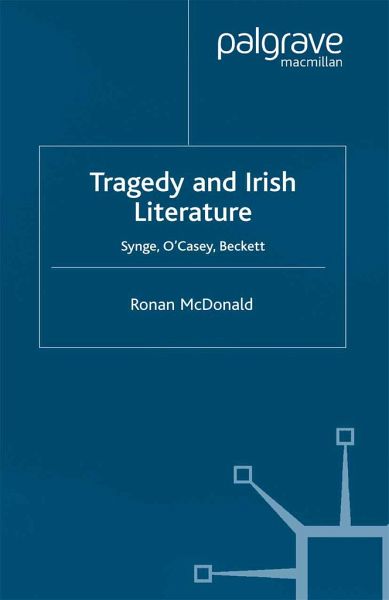
Tragedy and Irish Literature
Synge, O'Casey, Beckett
Versandkostenfrei!
Versandfertig in 6-10 Tagen
76,99 €
inkl. MwSt.
Weitere Ausgaben:

PAYBACK Punkte
38 °P sammeln!
In Tragedy and Irish Literature, McDonald considers the culture of suffering, loss, and guilt in the work of J.M. Synge, Sean O'Casey and Samuel Beckett. He applies external ideas of tragedy to the three dramatists and also discerns particular sorts of tragedy within their own work. While alert to the real differences between the three writers, the book also traces common themes and preoccupations. It identifies a conflict between form and content, between heightened language and debased reality as the hallmark of Irish tragedy.





